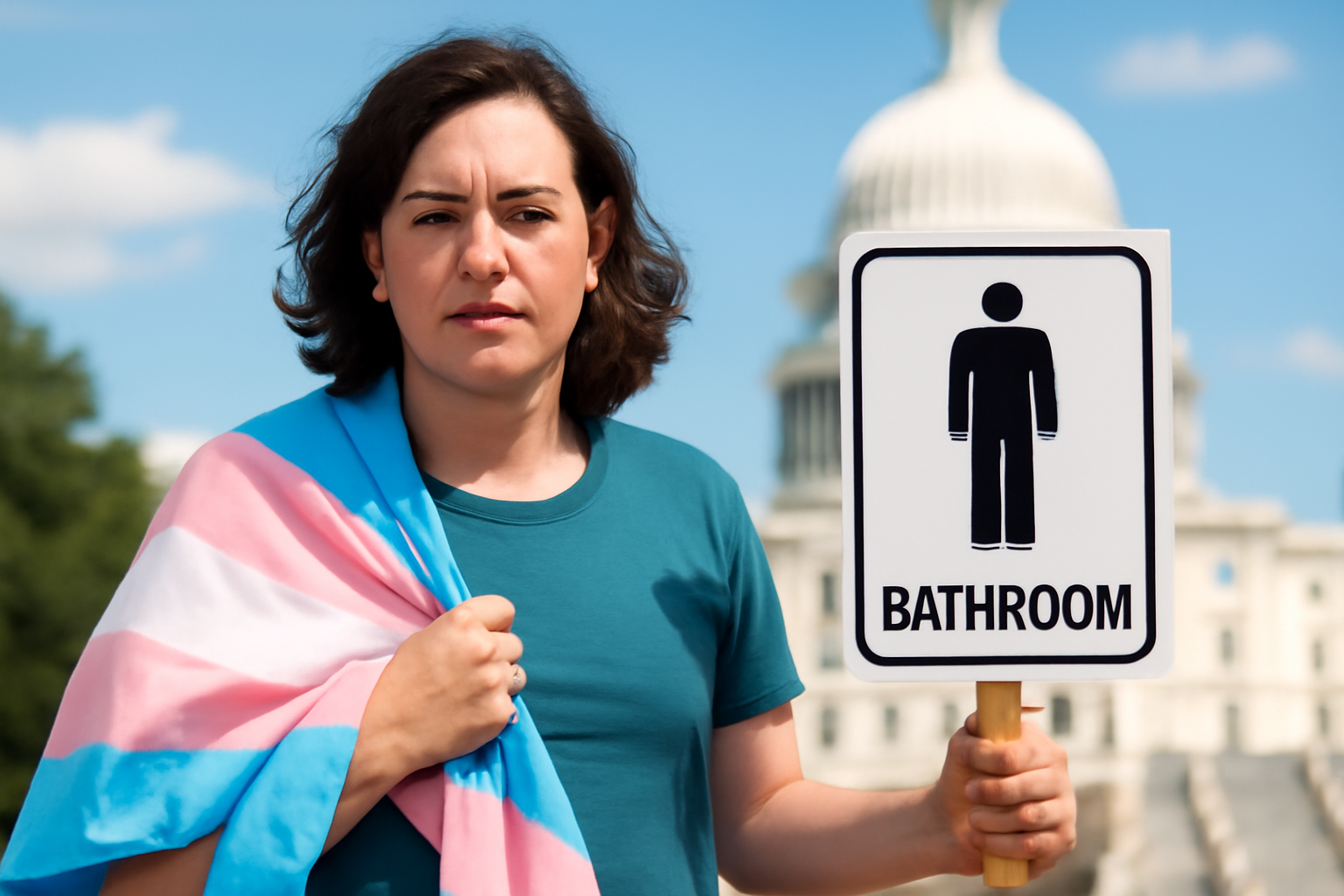
Introduction
In a move that has sparked significant controversy and debate, the U.S. House of Representatives has recently instituted a new policy regarding the use of bathrooms that has been described by many as discriminatory against transgender individuals. The policy, quietly enacted under the radar, has become a focal point of criticism from LGBTQ+ rights advocates and community members, who see it as a step backward in the fight for equality and inclusion.
The New Policy
The policy, implemented under the leadership of Speaker Mike Johnson, restricts the use of bathroom facilities in the House to individuals based on their "biological sex" as recorded at birth. This decision effectively bans transgender individuals from using the bathroom that aligns with their gender identity while within the legislative body’s facilities.
Supporters of this policy argue that it is intended to address privacy and safety concerns. However, opponents argue that it is a thinly veiled attempt to marginalize and discriminate against transgender people, undermining their rights and dignity in a public setting.
Reactions from LGBTQ+ Advocates
LGBTQ+ advocacy groups have been swift and vocal in their condemnation of the policy. "This is a blatant attack on the rights of transgender individuals," said a spokesperson from a leading LGBTQ+ rights organization. "Policies like these only serve to perpetuate discrimination and reinforce harmful stereotypes. Transgender people deserve the same rights and respect as everyone else, including the right to use the bathroom that matches their gender identity."
Many advocates see this move as part of a broader trend of anti-LGBTQ+ legislation and rhetoric that has been gaining traction in certain political circles. "This is not an isolated incident," the spokesperson continued. "It is part of a systematic effort to roll back the hard-won rights and protections for LGBTQ+ individuals."
Impact on Transgender Individuals
The impact of such a policy is deeply personal for transgender individuals who work in or visit the House of Representatives. "It’s dehumanizing," said one transgender staffer who wished to remain anonymous. "Being told that you cannot use the bathroom that aligns with who you truly are is not just inconvenient—it’s humiliating and invalidating."
For many transgender people, access to appropriate bathroom facilities is not just a matter of comfort, but of safety. Public restrooms have historically been spaces where transgender individuals face harassment and violence, and policies like this exacerbate those risks by forcing them into potentially hostile environments.
Broader Implications
Beyond the immediate impact on individuals, this policy has broader implications for the work environment and culture within the House of Representatives. It sends a message about whose rights and identities are valued and respected. Critics argue that it sets a dangerous precedent for other government institutions and public spaces, potentially paving the way for similar discriminatory policies elsewhere.
Furthermore, this policy could affect the willingness of talented transgender individuals to pursue careers in government or public service, knowing that they may be subject to such discriminatory practices.
Looking Forward
As the policy begins to draw more public attention, there are growing calls for its reversal. Advocacy groups are mobilizing to challenge the decision and push for more inclusive and equitable policies within the House of Representatives and beyond.
"We will not stand idly by while our rights are being stripped away," said another advocate. "We urge members of the House to reconsider this policy and work towards a more inclusive and respectful environment for all individuals, regardless of gender identity."
The debate over this policy is likely to continue, highlighting the ongoing struggle for transgender rights and the importance of vigilance and advocacy in the face of discriminatory policies.
Conclusion
As the fight for LGBTQ+ rights continues, this recent policy serves as a stark reminder of the challenges that remain. It underscores the need for continued advocacy and activism to ensure that all individuals are treated with dignity and respect, and have the freedom to live authentically without fear of discrimination.
In these times, it is crucial for allies and advocates to stand together with the transgender community, amplifying voices and demanding change in the pursuit of a more inclusive society.
Related Posts
Triumphant Trans Woman Wins Legal Battle and Inspires Others to Stand Up for Their Rights
Breaking new ground: a landmark victory in transgender rights After battling in courtrooms and enduring endless challenges, Diana Portillo, a transgender woman, has secured a monumental victory in her decade-long fight against workplace discrimination. The result? Nearly $1 million awarded in a historic settlement. But this isn't just a win on paper—it represents a powerful precedent in combati [...]
Pride Month in Latin America: Protests and Demands for Equality
**Celebrating Pride and advocating LGBTQ+ rights in Latin America** Pride Month in Latin America was a lively mix where celebration met activism. Communities united, not just throwing a party but making a stand—demanding equality and pushing governments toward better protection and rights recognition. Throughout Latin America, pride events erupted in marches and cultural displays, each with a c [...]
Transgender Erasure Actions Implemented by National Park Service
```html Trump administration's impact on national park service and transgender recognition The Trump administration made notable moves in undermining transgender representation, which included directing agencies like National Park Service not include "T" and "Q" when they refered “LGBTQ” in any official communication. This move seems part a broader plan by this administration aimed at reducin [...]